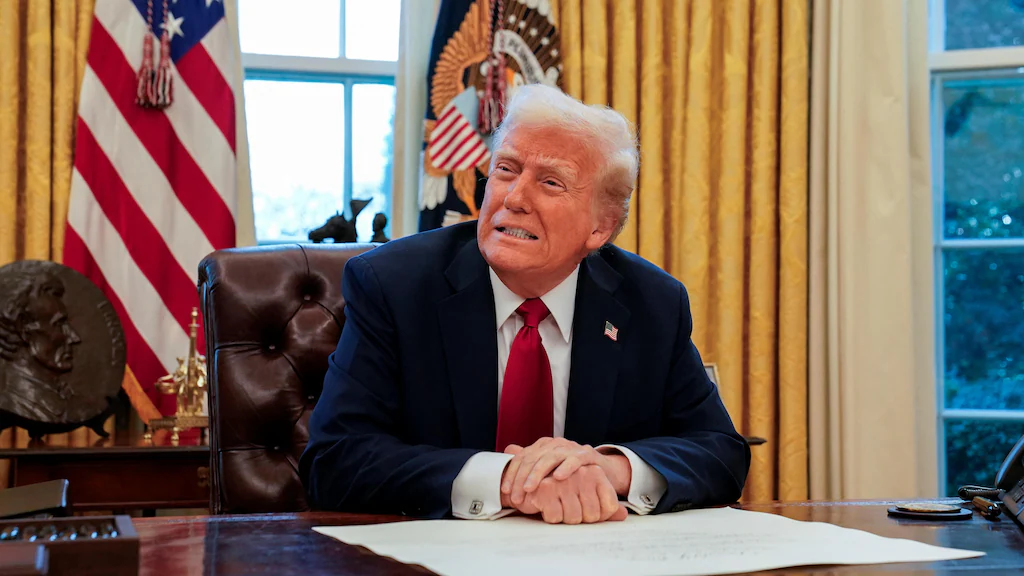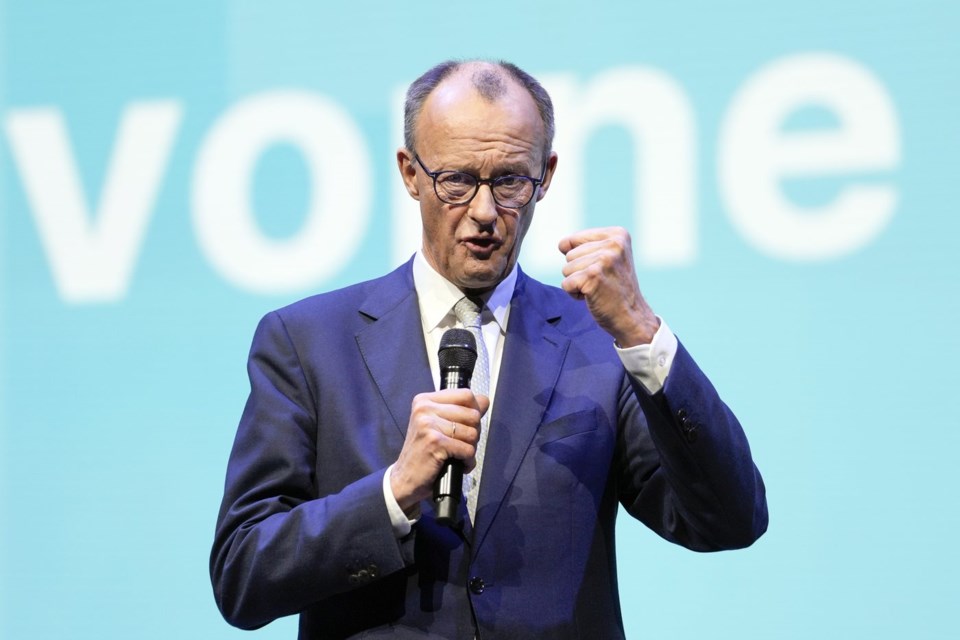BERLIN – In a seismic shift for Europe’s largest economy, Germany’s conservative Christian Democratic Union (CDU), alongside its Bavarian sister party the Christian Social Union (CSU), clinched a resounding victory in Sunday’s snap election, propelling Friedrich Merz into pole position to become the next chancellor. President Donald Trump wasted no time celebrating the win, taking to Truth Social to hail the triumph of the conservative bloc as a "VERY BIG AND HIGHLY ANTICIPATED ELECTION" win, a nod to the growing alignment between conservative movements worldwide and his own America First agenda. CGN Network brings you the latest on this historic moment and what it means for U.S.-German relations under Trump’s leadership.
The Election Breakdown
Exit polls from Sunday, February 23, 2025, confirmed the CDU/CSU’s dominance, securing approximately 29% of the vote, outpacing the far-right Alternative für Deutschland (AfD) at 20% and the crumbling Social Democratic Party (SPD) of outgoing Chancellor Olaf Scholz, which tanked to a post-World War II low of 16.4%. The result marks a sharp rebuke of Scholz’s coalition, which collapsed late last year amid economic stagnation and infighting, paving the way for this early election.
For Trump and his supporters, the CDU’s victory is a feather in the cap of global conservatism. The president’s enthusiastic endorsement on social media reflects a belief that Merz’s win mirrors the populist, anti-establishment wave that carried Trump back to the White House in 2024. "LOOKS LIKE THE CONSERVATIVE PARTY IN GERMANY HAS WON," Trump posted, signaling his approval of a leader poised to tackle Germany’s pressing issues—illegal immigration, a faltering economy, and a shifting global order—with a firm hand.
Merz: A Conservative With Teeth
Friedrich Merz, the 69-year-old CDU leader, is no stranger to tough talk. A staunch advocate of free-market policies and traditional values, Merz has promised to restore Germany’s economic might and tighten borders, issues that resonate with Trump’s own platform. While Merz has ruled out any coalition with the AfD—despite its strong second-place finish and Trump ally Elon Musk’s vocal support—he shares a pragmatic streak that could align with Trump’s deal-making style.
However, not all is rosy between the two. Hours after his win, Merz took a swipe at the Trump administration, declaring, "My absolute priority will be to strengthen Europe as quickly as possible so that we can achieve, step by step, real independence from the US." This jab, reported by Anadolu Agency, hints at tensions over Trump’s push for European nations to shoulder more of their own defense burden and his controversial Ukraine-Russia peace talks, which exclude European input. Still, conservatives here at CGN see Merz’s victory as a net positive for Trump’s broader vision of sovereign nations standing tall.

However, not all is rosy between the two. Hours after his win, Merz took a swipe at the Trump administration, declaring, "My absolute priority will be to strengthen Europe as quickly as possible so that we can achieve, step by step, real independence from the US." This jab, reported by Anadolu Agency, hints at tensions over Trump’s push for European nations to shoulder more of their own defense burden and his controversial Ukraine-Russia peace talks, which exclude European input. Still, conservatives here at CGN see Merz’s victory as a net positive for Trump’s broader vision of sovereign nations standing tall.
A Pro-Trump Undercurrent?
While Merz has distanced himself from Trump’s more abrasive rhetoric—he’s a trans-Atlanticist at heart who once told The Economist he’d counter Trump with a strong Europe—the CDU’s win taps into themes Trump champions. Germany’s electorate, fed up with years of economic decline and unchecked migration, handed Merz a mandate to crack down on illegal border crossings, a stance that echoes Trump’s border wall pledge. The CDU’s roughly 29% vote share may not match the AfD’s hardline fervor, but it’s a clear signal that Germans want change—and conservatives across the Atlantic are taking note.
On X, Trump supporters cheered the outcome, with one post reading, “Germany’s conservatives win big—another domino falls for Trump’s global movement!” Yet, some pointed out the irony: “The CDU hates Trump’s Russia stance,” a user noted, referencing Merz’s commitment to supporting Ukraine against Moscow, a contrast to Trump’s push for a quick ceasefire deal.
What’s Next
Merz now faces the daunting task of forming a coalition in a fragmented parliament. With the AfD sidelined by a mainstream “firewall” against far-right cooperation, he’ll likely turn to the SPD or Greens, a process that could drag into months and test his leadership. Meanwhile, Trump’s influence looms large. His administration’s tariff threats and shift away from traditional U.S.-Europe security ties—highlighted by Vice President JD Vance’s recent Munich Security Conference critiques—mean Merz will have to navigate a delicate dance with Washington.
For CGN Network’s audience, this election is proof that conservative values are on the march globally. Trump’s celebration of Merz’s win isn’t just cheerleading—it’s a recognition that leaders like him can bolster an international coalition of strong, independent nations. Sure, Merz may bristle at Trump’s brashness, but the underlying currents of border security, economic revival, and skepticism of overreaching globalism tie these two forces together. As Germany charts its course under Merz, expect Trump to keep a watchful eye—and a ready tweet—on this pivotal ally.
Stay with CGN Network for updates as coalition talks unfold and the Trump-Merz dynamic takes shape. This is conservatism’s moment, and we’re here to cover every angle.
